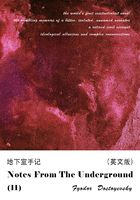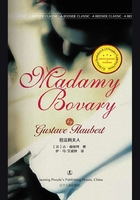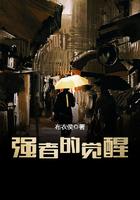At the end of the Rue Guenegaud, coming from the quays, you find the Arcade of the Pont Neuf, a sort of narrow, dark corridor running from the Rue Mazarine to the Rue de Seine. This arcade, at the most, is thirty paces long by two in breadth. It is paved with worn, loose, yellowish tiles which are never free from acrid damp. The square panes of glass forming the roof, are black with filth.
On fine days in the summer, when the streets are burning with heavy sun, whitish light falls from the dirty glazing overhead to drag miserably through the arcade. On nasty days in winter, on foggy mornings, the glass throws nothing but darkness on the sticky tiles-unclean and abominable gloom.
To the left are obscure, low, dumpy shops whence issue puffs of air as cold as if coming from a cellar. Here are dealers in toys, cardboard boxes, second-hand books. The articles displayed in their windows are covered with dust, and owing to the prevailing darkness, can only be perceived indistinctly. The shop fronts, formed of small panes of glass, streak the goods with a peculiar greenish reflex. Beyond, behind the display in the windows, the dim interiors resemble a number of lugubrious cavities animated by fantastic forms.
To the right, along the whole length of the arcade, extends a wall against which the shopkeepers opposite have stuck some small cupboards. Objects without a name, goods forgotten for twenty years, are spread out there on thin shelves painted a horrible brown colour. A dealer in imitation jewelry, has set up shop in one of these cupboards, and there sells fifteen sous rings, delicately set out on a cushion of blue velvet at the bottom of a mahogany box.
Above the glazed cupboards, ascends the roughly plastered black wall, looking as if covered with leprosy, and all seamed with defacements.
The Arcade of the Pont Neuf is not a place for a stroll. You take it to make a short cut, to gain a few minutes. It is traversed by busy people whose sole aim is to go quick and straight before them. You see apprentices there in their working-aprons, work-girls taking home their work, persons of both sexes with parcels under their arms. There are also old men who drag themselves forward in the sad gloaming that falls from the glazed roof, and bands of small children who come to the arcade on leaving school, to make a noise by stamping their feet on the tiles as they run along. Throughout the day a sharp hurried ring of footsteps, resounds on the stone with irritating irregularity. Nobody speaks, nobody stays there, all hurry about their business with bent heads, stepping out rapidly, without taking a single glance at the shops. The tradesmen observe with an air of alarm, the passers-by who by a miracle stop before their windows.
The arcade is lit at night by three gas burners, enclosed in heavy square lanterns. These jets of gas, hanging from the glazed roof whereon they cast spots of fawn-coloured light, shed around them circles of pale glimmer that seem at moments to disappear. The arcade now assumes the aspect of a regular cut-throat alley. Great shadows stretch along the tiles, damp puffs of air enter from the street. Anyone might take the place for a subterranean gallery indistinctly lit-up by three funeral lamps. The tradespeople for all light are contented with the faint rays which the gas burners throw upon their windows. Inside their shops, they merely have a lamp with a shade, which they place at the corner of their counter, and the passer-by can then distinguish what the depths of these holes sheltering night in the daytime, contain. On this blackish line of shop fronts, the windows of a cardboard-box maker are flaming: two schist-lamps pierce the shadow with a couple of yellow flames. And, on the other side of the arcade a candle, stuck in the middle of an argand lamp glass, casts glistening stars into the box of imitation jewelry. The dealer is dozing in her cupboard, with her hands hidden under her shawl.
A few years back, opposite this dealer, stood a shop whose bottle-green woodwork excreted damp by all its cracks. On the signboard, made of a long narrow plank, figured, in black letters the word: MERCERY. And on one of the panes of glass in the door was written, in red, the name of a woman: Therese Raquin. To right and left were deep show cases, lined with blue paper.
During the daytime the eye could only distinguish the display of goods, in a soft, obscured light.
On one side were a few linen articles: crimped tulle caps at two and three francs apiece, muslin sleeves and collars: then undervests, stockings, socks, braces. Each article had grown yellow and crumpled, and hung lamentably suspended from a wire hook. The window, from top to bottom, was filled in this manner with whitish bits of clothing, which took a lugubrious aspect in the transparent obscurity. The new caps, of brighter whiteness, formed hollow spots on the blue paper covering the shelves. And the coloured socks hanging on an iron rod, contributed sombre notes to the livid and vague effacement of the muslin.
On the other side, in a narrower show case, were piled up large balls of green wool, white cards of black buttons, boxes of all colours and sizes, hair nets ornamented with steel beads, spread over rounds of bluish paper, fasces of knitting needles, tapestry patterns, bobbins of ribbon, along with a heap of soiled and faded articles, which doubtless had been lying in the same place for five or six years. All the tints had turned dirty grey in this cupboard, rotting with dust and damp.
In summer, towards noon, when the sun scorched the squares and streets with its tawny rays, you could distinguish, behind the caps in the other window, the pale, grave profile of a young woman. This profile issued vaguely from the darkness reigning in the shop. To a low parched forehead was attached a long, narrow, pointed nose; the pale pink lips resembled two thin threads, and the short, nervy chin was attached to the neck by a line that was supple and fat. The body, lost in the shadow, could not be seen. The profile alone appeared in its olive whiteness, perforated by a large, wide-open, black eye, and as though crushed beneath thick dark hair. This profile remained there for hours, motionless and peaceful, between a couple of caps for women, whereon the damp iron rods had imprinted bands of rust.
At night, when the lamp had been lit, you could see inside the shop which was greater in length than depth. At one end stood a small counter; at the other, a corkscrew staircase afforded communication with the rooms on the first floor. Against the walls were show cases, cupboards, rows of green cardboard boxes. Four chairs and a table completed the furniture. The shop looked bare and frigid; the goods were done up in parcels and put away in corners instead of lying hither and thither in a joyous display of colour.
As a rule two women were seated behind the counter: the young woman with the grave profile, and an old lady who sat dozing with a smile on her countenance. The latter was about sixty; and her fat, placid face looked white in the brightness of the lamp. A great tabby cat, crouching at a corner of the counter, watched her as she slept.
Lower down, on a chair, a man of thirty sat reading or chatting in a subdued voice with the young woman. He was short, delicate, and in manner languid. With his fair hair devoid of lustre, his sparse beard, his face covered with red blotches, he resembled a sickly, spoilt child arrived at manhood.
Shortly before ten o'clock, the old lady awoke. The shop was then closed, and all the family went upstairs to bed. The tabby cat followed the party purring, and rubbing its head against each bar of the banisters.
The lodging above comprised three apartments. The staircase led to a dining-room which also did duty as drawing-room. In a niche on the left stood a porcelain stove; opposite, a sideboard; then chairs were arranged along the walls, and a round table occupied the centre. At the further end a glazed partition concealed a dark kitchen. On each side of the dining-room was a sleeping apartment.
The old lady after kissing her son and daughter-in-law withdrew. The cat went to sleep on a chair in the kitchen. The married couple entered their room, which had a second door opening on a staircase that communicated with the arcade by an obscure narrow passage.
The husband who was always trembling with fever went to bed, while the young woman opened the window to close the shutter blinds. She remained there a few minutes facing the great black wall, which ascends and stretches above the arcade. She cast a vague wandering look upon this wall, and, without a word she, in her turn, went to bed in disdainful indifference.















